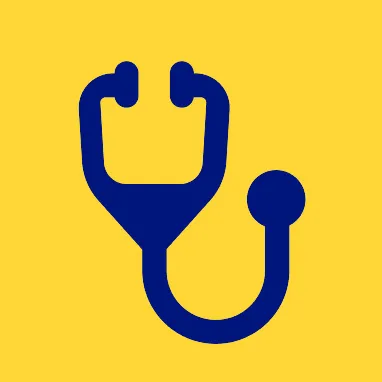- Overview
- Symptoms
- Causes & Risks
- Types of Eczema
- Locations on the Body
- Tests & Diagnosis
- Treatment
- Complications
- Living With
- View Full Guide
Eczema in Older Adults: What You Should Know


Eczema: Not Just for Kids
Doctors used to think of eczema as a children’s condition. But it’s almost as common in adults over 60 as it is in children under the age of 18. It may get better in childhood but come back when you’re older, or it may stick with you throughout life. Older adults can also get eczema for the first time. Adult-onset eczema is most common in people over 50.

Why Eczema Strikes Older Adults
Older skin is dryer, which can lead to itching and irritation. Your skin barrier, which keeps germs and irritants out, can weaken with age. Some changes that happen to women’s skin during menopause can make you more eczema prone. Older people might be more sensitive to allergens and other triggers, like fragrances and chemicals. Stressful life events, such as a death or a job loss, could trigger symptoms, too.

Common Eczemas in Older Adults: Atopic Dermatitis
Atopic dermatitis is the most common form of eczema, and you can get it at any age. This allergic condition causes the classic signs of eczema, including dry, itchy, irritated, red skin. These symptoms usually happen in response to a trigger in the environment.

Common Eczemas in Older Adults: Varicose
You’re at risk for varicose eczema if you don’t move around very much. Other risk factors include high blood pressure, varicose veins, and a history of blood clots. In this form of eczema, the skin on the lower legs gets fragile and breaks down, which can lead to ulcers. You might also get oozing, crusty sores on your legs.

Common Eczemas in Older Adults: Asteatotic
Also common in older people, this type of eczema usually affects the shins. Your skin gets dry, rough, and scaly, and can look like a dry riverbed or flagstone paving. Your risk is highest if you keep your house very warm and dry in the wintertime.

Drug-Induced Eczema
Older adults might be more prone to drug-induced eczema, or it might simply be that you are more likely to take some of the drugs that trigger eczema in older age. Some biologic medications for arthritis and targeted drugs for certain cancers can cause skin reactions that look and feel like eczema.

Eczema Symptoms in Older Adults
People who have eczema between ages 60 and 90 tend to have more severe and active disease. Symptoms, which include more intense itching than in younger people, are most likely to affect your arms, legs, and torso. Older people with eczema tend to get very dry skin and patches of skin that are discolored, irritated, or have a different texture.

Eczema and Other Health Conditions
Some diseases that happen more often in older age may be more common in people with eczema, too. As an older adult with eczema, it’s important to follow the treatment plan for any conditions you have and keep up with screenings and other routine preventive care. You might be at higher risk for heart disease, osteoporosis, depression, anxiety, and dementia.

Aging, Eczema, and Social Isolation
Eczema, especially when it’s moderate to severe, can push some people to stay inside and away from others. Older adults, because of decreased mobility or other challenges of aging, tend to isolate themselves, too. This can have negative effects on your health. If you feel you can’t socialize because of your eczema, ask your doctor how you can better control your symptoms.

Drug Interactions
As you get older, you’re likely to need more medicines than you did before. Age-related changes in your body can affect how your body processes medicines and how you respond to them. It’s important to make sure new drugs won’t have risky interactions with your eczema treatment or other medications. Even over-the-counter treatments and natural supplements come with risks for people who take certain drugs or have certain diseases.
Show Sources
IMAGES PROVIDED BY:
- iStock / Getty Images Plus / Getty Images
- Peter Dazeley / Getty Images
- Moment / Getty Images
- iStock / Getty Images Plus / Getty Images
- DermPics / Science Source
- SimpleImages / Getty Images
- iStock / Getty Images Plus / Getty Images
- Lars Neumann / Getty Images
- E+ / Getty Images
- DigitalVision / Getty Images
SOURCES:
National Eczema Association: “Atopic dermatitis in older adults is common, harder to treat.”
National Eczema Society: “Eczema in Later Life.”
American Academy of Dermatology: “Can You Get Eczema as an Adult?”
National Institute of Arthritis and Musculoskeletal and Skin Diseases: “Atopic Dermatitis.”
American Journal of Clinical Dermatology: “Eczematous drug eruptions.”
European Journal of Dermatology: “Eczema in elderly people.”
European Journal of Inflammation: “Clinical features of eczema and dermatitis in the elderly: A cross-sectional study in mainland China.”
PLoS One: “The epidemiology of atopic dermatitis in older adults: A population-based study in the United Kingdom.”
Allergy UK: “The Mental Health Impact of Living with Atopic Eczema.”
National Institute on Aging: “Loneliness and Social Isolation–Tips for Staying Connected.”
Journal of Midlife Health: “Polytherapy and Drug Interactions in Elderly.”